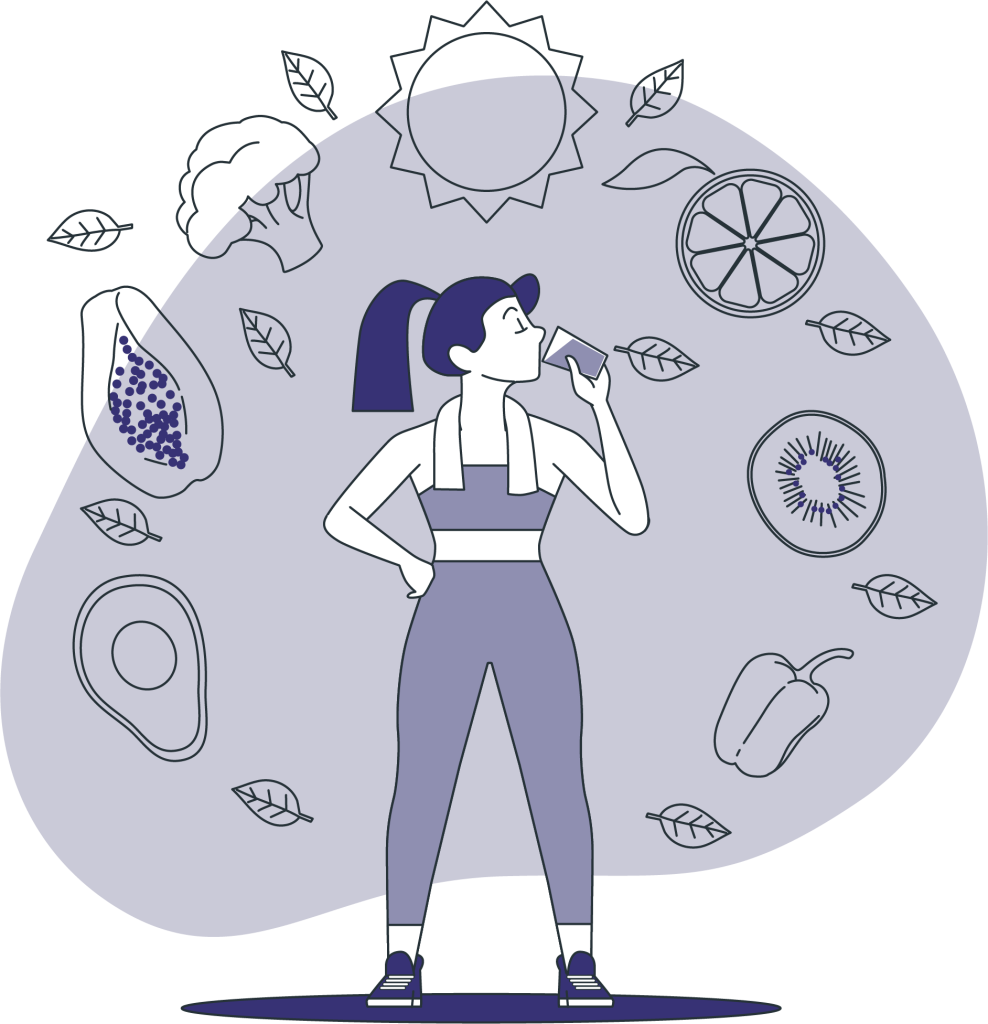Breast cancer is a significant health concern affecting millions of women worldwide. While some risk factors are beyond our control, there are proactive steps we can take to reduce the likelihood of developing this disease. In this blog, we’ll explore evidence-based strategies to minimise the risk of breast cancer and emphasise the importance of regular self-exams and timely screenings.
Breast cancer is the second most commonly diagnosed cancer in Australia, with over 20,000 people estimated to be diagnosed this year. And, even though many non-modifiable risk factors may cause breast cancer, including age, race, family history, mutations, breast disease, and more, there are just as many steps you can take to live a healthy lifestyle and to help prevent breast cancer.
Maintain a Healthy Lifestyle:
A well-balanced lifestyle is crucial in reducing the risk of breast cancer. Regular exercise, a nutritious diet, and maintaining a healthy weight have been linked to a lower incidence of the disease. Aim for at least 150 minutes of moderate-intensity exercise per week and include a variety of fruits, vegetables, and whole grains in your diet.
In addition to regular exercise, a nutritious diet, and maintaining a healthy weight, consider incorporating the following tips:
- Hydration Matters: Stay well-hydrated by drinking an adequate amount of water daily. Proper hydration supports overall health and helps maintain bodily functions.
- Mindful Eating: Practice mindful eating by paying attention to your body’s hunger and fullness cues. Avoid distractions while eating and savour each bite.
- Stress Management: Chronic stress may impact your health. Incorporate stress-reducing activities such as yoga, meditation, or deep-breathing exercises into your routine.


Limit Alcohol Consumption:
Numerous studies have shown a direct correlation between alcohol consumption and an increased risk of breast cancer. To minimise this risk, it is advisable to limit alcohol intake or abstain altogether. If you do choose to drink, it’s recommended to do so in moderation—no more than one drink per day for women.
To further minimise the risk associated with alcohol consumption, consider these additional strategies:
- Alcohol-Free Days: Designate specific days of the week as alcohol-free. This approach helps reduce overall alcohol intake and supports a healthier lifestyle.
- Explore Non-Alcoholic Alternatives: Experiment with non-alcoholic beverages as alternatives to traditional alcoholic drinks. Numerous mocktail recipes can be both enjoyable and health-conscious.
Quit Smoking:
Smoking is a well-known risk factor for various cancers, including breast cancer. If you smoke, quitting is one of the best things you can do for your overall health. Seek support from friends, family, or a smoking cessation program to increase your chances of success.
Quitting smoking is a journey, and additional support can enhance your chances of success:
- Nicotine Replacement Therapy (NRT): Explore NRT options such as nicotine patches, gum, or lozenges to manage withdrawal symptoms. Consult with your healthcare provider to determine the most suitable approach for you.
- Support Groups: Joining a smoking cessation support group or seeking counselling can provide valuable encouragement and motivation throughout your quitting process.


Breastfeed if Possible:
For mothers, breastfeeding has been associated with a lower risk of breast cancer. Aim to breastfeed for at least six months, as it provides both short-term and long-term health benefits for both the mother and the child.
To make breastfeeding a positive experience for both mother and child:
- Lactation Consultation: Consider consulting with a lactation specialist to ensure proper latch and feeding techniques, creating a comfortable and successful breastfeeding experience.
- Support Network: Surround yourself with a supportive network of friends, family, or fellow breastfeeding mothers who can offer advice and encouragement.
Know Your Family History:
Understanding your family history is crucial in assessing your risk of breast cancer. If there is a family history of the disease, consult with a healthcare professional to discuss personalised screening and prevention strategies.
Hormone Replacement Therapy (HRT) Awareness:
For women undergoing hormone replacement therapy (HRT) during menopause, it’s important to discuss the potential risks and benefits with a healthcare provider. Long-term use of certain hormonal therapies has been linked to an increased risk of breast cancer. Schedule regular check-ins with your healthcare provider to assess the ongoing need for hormone replacement therapy. Open communication ensures adjustments can be made based on your health and well-being.
Regular Self-Exams and Screenings:
Early detection is key to successful breast cancer treatment. Perform regular self-exams and be vigilant about any changes in your breasts. Additionally, follow recommended screening guidelines, including mammograms and other relevant tests, as advised by your healthcare provider.
High-Risk Individuals: Additional Measures
Genetic Counselling and Testing: If you have a higher risk due to family history or gene changes, we’ll guide you on the importance of genetic counselling and testing. Understand how this knowledge can inform preventive measures.
More-Frequent Exams and Early Screening: For those at higher risk, we’ll discuss the significance of more frequent breast exams and early screening. Explore the available options and their potential impact on early detection.
Medicines and Preventive Surgery: In certain cases, preventive measures such as medicines or surgery may be recommended. We’ll provide insights into the considerations and decision-making process.
Mastectomy: In certain high-risk individuals, surgical intervention can serve as a proactive measure to lower the likelihood of breast cancer occurrence. This preventive approach involves the removal of breast tissue, known as a prophylactic mastectomy, which has been shown to substantially diminish the risk of various types of breast cancer. Prophylactic mastectomy procedures may encompass total mastectomy (involving removal of breast tissue, skin, and nipple-areola complex), skin-sparing mastectomy (involving removal of breast tissue and nipple-areola complex), or nipple-sparing mastectomy (involving removal of breast tissue while sparing the skin and nipple-areola complex). Often, patients opt for breast reconstruction in conjunction with prophylactic mastectomy. Moreover, for premenopausal women, the removal of both ovaries can not only lower the risk of ovarian cancer but also mitigate the future likelihood of developing breast cancer.
Breast cancer prevention is about empowerment and informed choices. Even if you adopt a healthy lifestyle, regular self-exams and timely screenings remain crucial for early detection. If you have concerns, consult your healthcare provider promptly. In the Toowoomba region, Cutting Edge Surgery Toowoomba offers specialised expertise with two consultant surgeons dedicated to optimal patient outcomes. Prioritise your health and take charge of your well-being today – because proactive measures are key to a healthier future. Book a consultation today!

